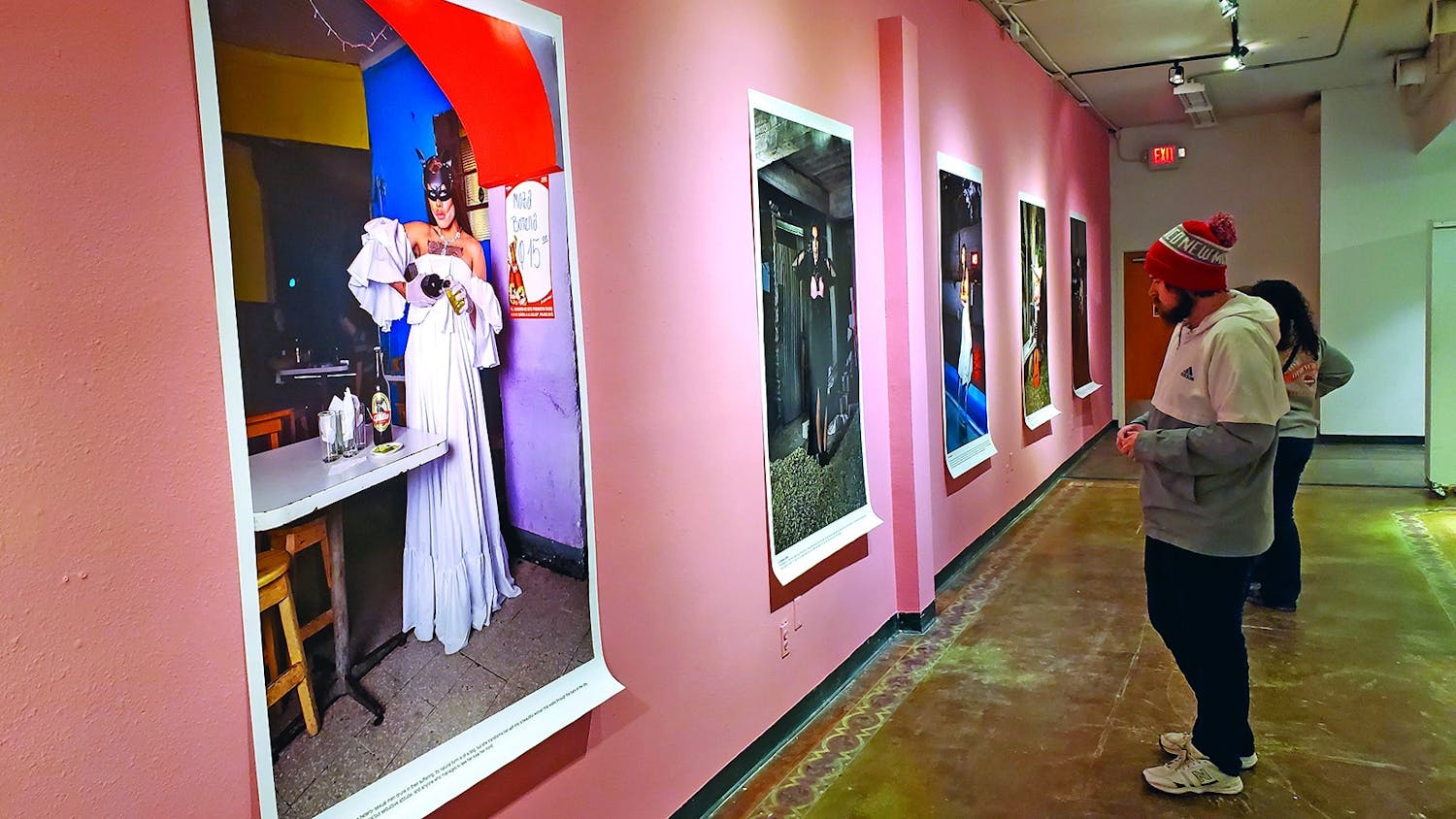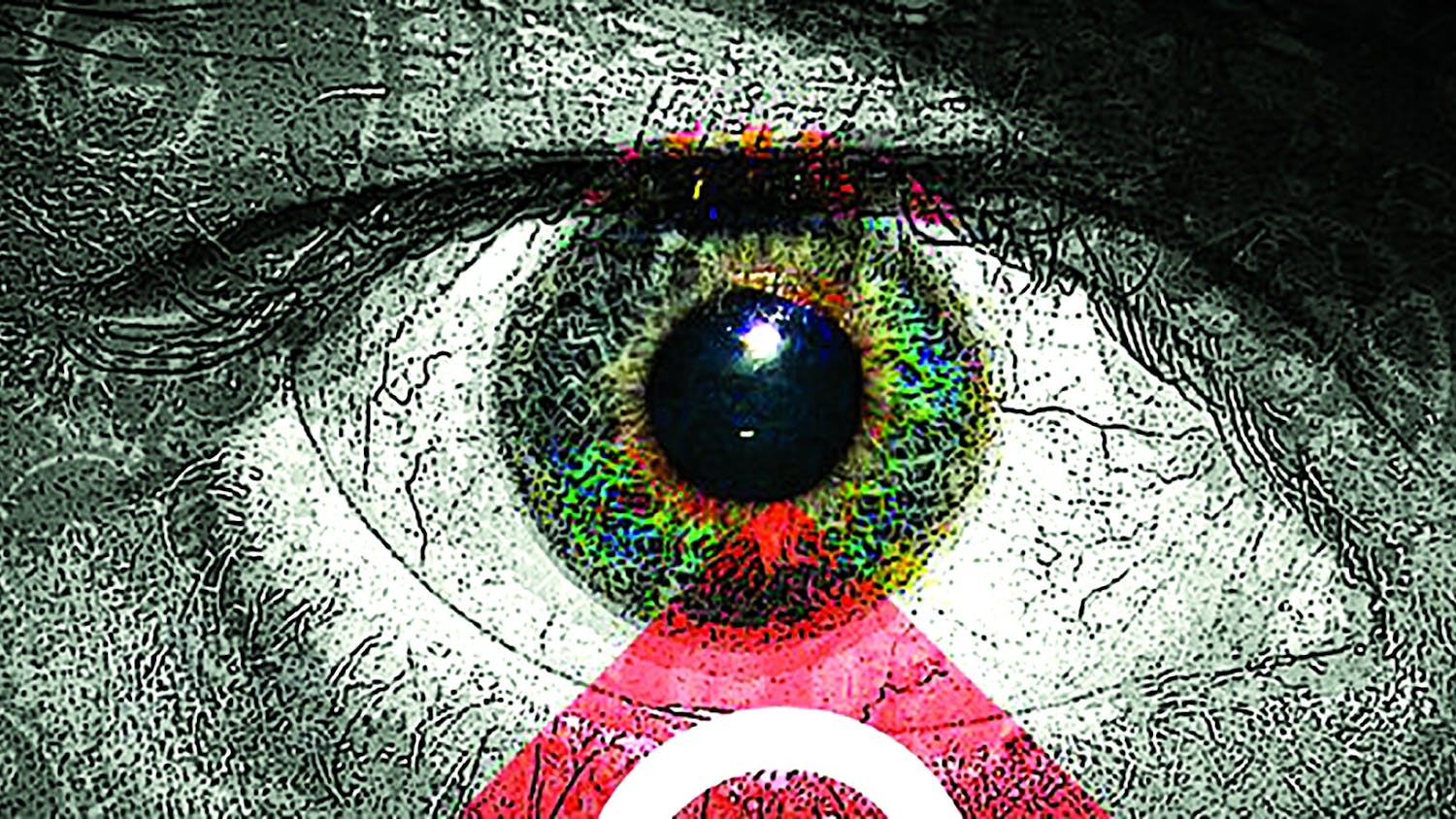When a band releases their breakout album, they must face the question that all musical artists face in this situation: "Do I stick to the sound that won me all these accolades, or continue to reinvent myself?" In my opinion the truly great bands continue to reinvent their sound, even after achieving enormous amounts of fame. Artists like Arcade Fire or Kanye West consistently bring something new with every single release. For me though, Wilco stand out due to the fact that they have been reinventing themselves from day one.
Spanning ten studio albums, one live album, and three collaborations with singer/songwriter Billy Bragg, Wilco’s discography reveals a band constantly evolving. When listened to chronologically, the albums illustrate them growing up, slowly maturing into the pivotal group they have become.
It is impossible to discuss Wilco in any way without addressing the mastermind behind it all, lead singer and guitarist Jeff Tweedy. What strikes me most about Tweedy is his uncanny ability to write a killer hook. I would never call Wilco a pop band, yet trying not to sing along to any of their songs remains impossible. Formed out of the ashes of his first group, Uncle Tupelo, Wilco is Tweedy’s baby; he has been its leader, primary songwriter, and the face of the band from its infancy. This has often led to tension between Tweedy and other bandmates, so it comes as no surprise that Wilco has had a revolving door of members over the years, save for Tweedy and bassist John Stirratt.
If you have ever come across Wilco before, chances are it was in reference to Yankee Hotel Foxtrot, their magnum opus. YHF stands as Wilco’s defining moment, and their history may just exist in two parts: before the album, and after. For me, this is the best way to examine the band because, while all their albums contain a unique sound, YHF sees Tweedy & Co. shift into uncharted territory. No longer do we hear the Wilco of old, and I believe this in particular greatly contributes to their longevity. Sure, you like it when a band sticks to the sound you fell in love with. However after twenty years of making music, variety becomes vital.
In the end, no matter what your musical tastes may be, Wilco has an album for you.
Alt-Country Pioneers:
My Morning Jacket and Sturgill Simpson, two of the most renowned alt-country artists, owe an enormous debt to Wilco for paving the way for alt-country’s success. While they were certainly not the only alt-country band at the time, Wilco carved out a niche for themselves with simple songs consisting of poetic lyrics, jammy guitars, and some country elements, like banjo, sprinkled into the mix. All this occurred during the release of their first two records, A.M. and Being There. On the former of the two, highlights include endearing little tunes like “I Must Be High” and “Passenger Side” (the amount of car puns in this song makes me very happy). Both of these tracks discuss the tribulations that arise in personal relationships, a theme found throughout the album.
Whereas A.M. is straightforward and charming, Being There is massive and emotionally complex. With a playing time of seventy-six minutes over nineteen tracks, the double album shows Tweedy utilizing the same alt-country sound but with much more experimentation and raw power. The album begins with “Misunderstood”, a colossal track about life after college for many people; spent in their childhood home with their parents. Tweedy’s soft vocals break my heart with every line:
“When you’re back in your old neighborhood
Get content from The Daily Lobo delivered to your inbox
Cigarettes taste so good.
But you’re so misunderstood.”
The last track, “Dreamer In My Dreams”, reveals a complete contrast from the album’s tender beginning. The song begs to be played at Folsom Prison in front of hundreds of inmates, as fiddles and guitars rage alongside impassioned vocals. While this was the sound that established Wilco, we only get tiny pieces of it throughout the rest of their discography. Things were about to get much more dark.
Experimentation and Collaboration:
Before Wilco recorded their third album, Tweedy met with British singer/songwriter Billy Bragg about a possible collaboration. The incredibly influential folk singer Woody Guthrie had died three decades earlier, but his estate possessed thousands of completed lyrics that had no music accompaniment. Bragg and Wilco were recruited to record the songs in a series of albums known as Mermaid Avenue. Of all the songs they recorded, the best would have to be "California Stars." Jesus, I love this song. It’s absolutely, positively addicting.
It paints a picture of floating through space gazing upon the wondrous beauty of the world. The lyrics are not Tweedy’s, but he makes them his own, and the tracks remains one of the best Wilco has ever recorded.
What strikes me most about Summerteeth, the band’s third studio album, is just how morbid the lyrics are. The country-inspired instrumentation is nowhere to be found, replaced with eerie acoustics that set the mood for Tweedy’s matter-of-fact singing. “Via Chicago” contains the most disturbing lyrics on the whole album:
“I dreamed about killing you again last night
And it felt alright to me.
Dying on the banks of Embarcadero skies
I sat and watched you bleed.”
Summerteeth is a complete 180° in tone for Wilco. It feels infinitely more serious than their previous two efforts, and another universe from “California Stars.” There is no room for silly emotions on this album. “How To Fight Loneliness” provides a discomforting examination on, you guessed it, loneliness. The phrase “just smile all the time” repeats many times at the end, and I find myself wincing at the pain just hearing it. As great an album as this is, and it is wonderful, you will not have any fun listening to it.
Game Changers:
I am willing to make the case that Yankee Hotel Foxtrot is the best album of the 2000’s. I can already hear the pitchforks being readied as the angry mob screams, “Kid A is the best! How dare you neglect Radiohead!”
Well, you know what, I don’t care much for Radiohead (there, I said it!) but besides that, YHF perfectly defines the time and place in which it was created, something not a lot of other albums can say.
The story behind the creation and release of this album is shocking. When the fully completed record was delivered to Wilco’s label, Reprise Records (a subsidiary of Warner) rejected it and demanded the various changes be made to the music. Tweedy, the stubborn genius he is, refused to do so. Honestly, I can understand why the label was less than pleased with how YHF turned out. The band had yet to write a hit single under the label, and if there’s one thing that Yankee Hotel Foxtrot lacked, it was a hit single. The songs are fantastic, of course, but out of context they just don't stick as well. They’re not made to be played twenty times a day on the radio, so for a record company whose primary goal is to make profits, I understand the concern. That, however, does not excuse the fact that Reprise, in all their corporate naivete, rejected a masterpiece because, at the end of the day, they just didn’t get it.
YHF kicks off with probably the best opening line to an album in “I am Trying to Break Your Heart”:
“I am an American aquarium drinker.
I assassin down the avenue.”
This line gives me literal chills every time I hear it. It delves into themes of disillusionment and isolation that are found on nearly every track. “Pot Kettle Black” and “Kamera” are some of the more poppy tracks, if you could call it pop. The tone of these tracks reminds me of the first moments after crying for a while, in that you definitely feel better than before, but you still have sticky dry tears against your burning cheeks.
Released in 2002, there has been speculation that many of the lyrics are about the September 11th terrorist attacks. However, this is not the case, due to the fact that the songs were written prior to the horrible day. Not to mention, the album, before the record label snafu, was originally slated to be released on September 11, 2001. So while the songs were not written with the attacks in mind, they provide the perfect soundtrack for a stunned America, unsure of itself after terrible tragedy. The lyrics to “Jesus, etc.” epitomizes this feeling perfectly:
“Voices whine
Skyscrapers are scraping together
Your voice is smoking
Last cigarettes are all you can get
Turning your orbit around.”
YHF is unlike any album in that during certain moments, where most bands would break out into heavily layered instrumentation, Wilco chooses to fill empty spaces with subtle sonic qualities. On “Reservations,” every break between verses is filled, not with guitars, nor drums, but with minimal piano, chimes, and some sonic drones. It doesn’t hit you in the gut like most ballads would, yet one still feels the same powerful emotions. Just in a new way. In fact, that’s how every track on this album leaves me.
Eventually, Wilco was allowed to take the album to any label they wanted, eventually signing with Nonesuch, another subsidiary of Warner. So, essentially, Warner paid for the same album, twice.
Who likes Dad-Rock?:
Wilco’s next three albums, A Ghost is Born (2004), Sky Blue Sky (2007), and Wilco [The Album] (2009) see the band transition into the wonderfully dull world of “dad-rock”. I like the genre just fine, but it is a style of music not usually known for its innovation and cutting edge methods. Wilco finds a way to make it their own, albeit with different levels of success on each release.
A Ghost is Born, my least favorite of the three, feels sort of like a continuation of YHF by containing some unconventional decisions while slowly transitioning to a more radio friendly sound. “Hummingbird” starts off with some very cheery piano, but slows down to a crawl before picking up again. I often wish for more jammy tracks on this record, because it begins to drag after a while. You could say the same about YHF, but there are enough catchy tunes to keep your ears pined. The 15 minute long “Less Than You Think” does little to help. The worst part is that the best song on the entire album, “Kicking Television,” can only be found on the deluxe version. It’s disappointing that one of the few moments of intense excitement is relegated to bonus track status.
You could have pulled Sky Blue Sky straight out of the Eagles’ playbook. It is the most folky album the band's arsenal, as well as one of their most consistent records from start to finish. “Impossible Germany” is one of the band’s best songs - despite its simplicity, it freaking rocks. Songs like “Hate It Here” could've easily been featured on The Last Waltz, the last ever show The Band played, and that’s not a bad thing. It is so refreshing to hear a classic rock album not weighed down by nostalgia. Wilco does not sound like they are trying to be anyone else. We also hear the band returning to an alt-country sound on the title track, a welcome return to form with which they made their initial impression.
Peaking at #4 on the Billboard chart, Wilco [The Album] shows the band at their most mature. This was Wilco’s seventh record, and it is evident through strong and consistent songwriting one very track. Singer/songwriter Feist joins in on “You and I,” a purely saccharine love song that contains a very optimistic outlook on relationships. If you and your significant other are going through a rough patch, this may be what you need. It reminds the masses why we pursue relationships in the first place. The incredibly catchy “I’ll Fight” addresses personal sacrifice, both in how valiant and futile it may be. The whole album makes you feel so good, and considering how haunting and introspective Wilco’s previous efforts our, a positive outlook is a great change of pace. One of their best, hands down.
Things Get Chill:
Now veterans of the recording world, Wilco founded their own record label, dBpm Records, on which they would release their next three records. The first two, The Whole Love and Star Wars, disappoint the seasoned Wilco listener only in the sense that they lack the same innovation and experimentation that the band had become so renowned for. The former does contain decent tracks, especially “Dawned on Me,” but it's inherently unremarkable nature makes it probably my least favorite Wilco record. Not to say that it is terrible, just that it fails to achieve the uniqueness of prior albums.
Often labeled as their worst album, I quite enjoy and respect Star Wars, mostly for its wonderful cover art and lawsuit-baiting title. Beyond aesthetics, there are also some amazing moments scattered throughout the track listing. “Taste the Ceiling” tells a very cerebral tale on personal love:
“I was on the ceiling I could almost taste the sun.
Try the words in sequence but that’s never how it’s done.
Why do our disasters creep so slowly into view?
I was only after a friend to follow through.”
`“Random Name Generator” and “The Joke Explained” provide the quirky sonic folk sound that defines the album, making for easy-going enjoyment. I definitely like this album a lot more than I thought I would.
Just last year, Wilco released their most folk album yet in Schmilco. This is probably my favorite release of theirs since 2009’s Wilco [The Album]. Tweedy brings back the poetry in his lyrics, so much that even if the songs are simple in concept, the words throw an emotional gut punch. Undoubtedly, the stand out track would have to be “If I Ever Was A Child,” an aged, beleaguered look at middle-aged life, wherein one finds themself questioning life, trying desperately to find the good old days of childhood. It is a surprisingly sad song, one that any person, self-aware of their age, could relate to. A very pleasant record overall, although the song “Common Sense” is as irritating as they come.
After listening to all of their records repeatedly, I have begun to realize what an important band they are. Any fans of contemporary rock could spend only a short time on Pandora before hearing bands with a Tweedy-esque sound. They are true legends, and really one of the greatest American rock bands of all time. I’ll leave you now with a line from one of my favorite Wilco tracks, “Reservations,” with an utterly non-complex chorus that constantly manages to tug at my heart. In my opinion, this line, in its timbre, delivery, rhythm and wording, is pure Wilco:
“I’ve got reservations
About so many things,
But not about you.”
Kyle Land is a music writer for the Daily Lobo. He can be reached at music@dailylobo.com or uffdaculture.blogspot.com






